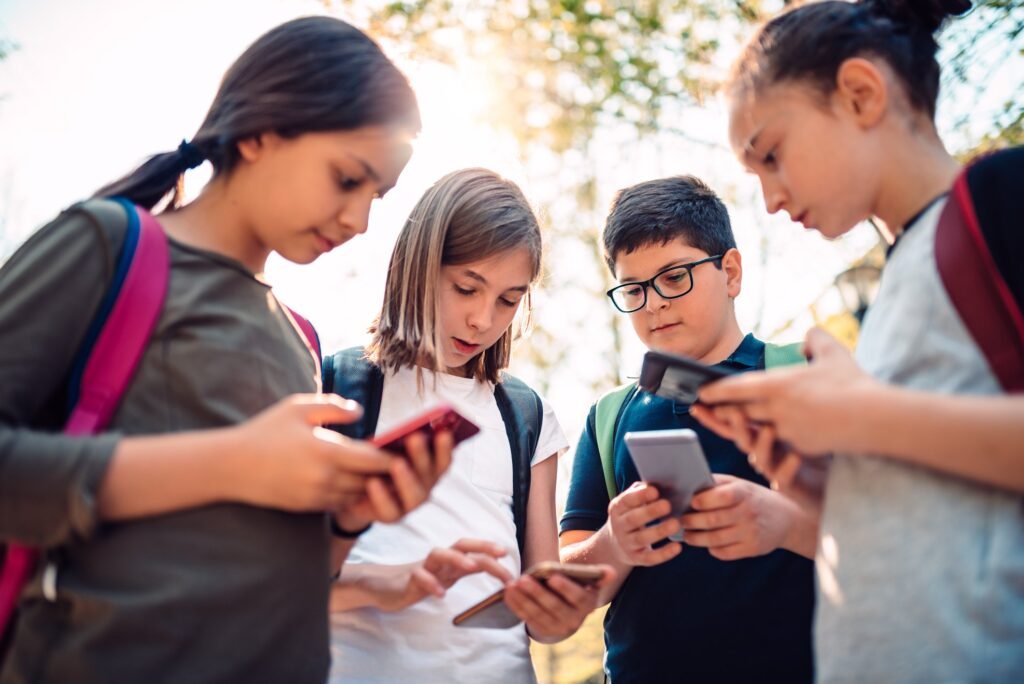How Social Media Affects Children?

When we got here
Social media have become one of the mainstays of the modern internet. Even though modern social networks are associated primarily with Facebook and the likes that appeared in the 2000s and 2010s, the rise of social media coincided with that of the internet in late 1990s. The first widely known social media were ICQ and AOL Messenger. Yet arguably neither has been regarded as addictive as their successors. This is partly due to the emergence of broadband internet and portable smartphones.
Social media and video games
Social media addiction could be understood within the broader umbrella term of technology addiction that also includes video game addiction. It could be argued that, unlike video games, the addiction to social media does not always entail the introvert nature of an individual. But it still presents an undeniable problem. While video games typically have a parental rating, the social media content is uncensored and openly available to everyone, just like the rest of the internet.
All eyes on me
In some cases a person glued to their smartphone may not notice the impending danger, like car, and die. More typically, social media addiction deteriorates eyesight due to prolonged regular exposure to small text. Some modern smartphones even introduced the function of night light whose color is warmer than the typical bluish screen light. With more and more generations born in the digital era, particular care to keep social media usage in check is evident. Especially when the sheer volume of mature content on social media is considered.

Age groups
According to ExpressVPN’s report, in the US and UK children as young as 4 years old use social media and spend 21 minutes each day on average there. As children grow older, this duration increases. 13-year-olds, approaching their teens, spend 45 minutes on average, according to the same report. Such relatively short durations are due to the fact that few children in those ages have their own media accounts which are checked regularly by their elder peers. A second thing is that parents typically have greater control over children of such ages.
Typical threats
Unmanaged children’s exposure to social media may produce the same addiction as in teenagers and adults. Not only the aforementioned direct physical harm such as traffic dangers or worse eyesight come into play. The report mentions other threats of extensive social media usage: cyberbullying, depression that stems from comparing oneself to another and online predators, such as hackers, stalkers and pedophiles. According to the report, 59% of respondents said that they were most worried about their child being bullied. This was followed by fear of an online predator, fear that their child might come across offensive content and cyberstalking or online harassment. Many sources noted the toxic nature of online interactions in that regard. There were also various reports that offensive internet content caused or contributed to suicides. Former Facebook employee Frances Haugen revealed in 2021 that internal Facebook research has shown detrimental mental health effects of Instagram usage by young girls.
Solutions
Various sources proposed solutions to prevent or mitigate social media addiction. The American Academy of Pediatrics recommended no screen time for children under the age of two, and a maximum of one hour per day for those aged two to five years, with an emphasis on high-quality content, such as educational games. Setting up parental controls for your child’s device can help limit the amount of screen time and access to potentially harmful online content. If you have multiple devices and sources which can be accessed by your small child (such as gaming consoles, apps, online services/games, search engines, etc.), consider adding parental controls to each of them. The second thing to consider is privacy protection. Your child can do that by agreeing to: not share personal information like location or date of birth, not add personal details like phone numbers or birth date to their user profile, keep passwords and usernames private, without sharing them with friends, not use social media on public wi-fi and log out every time after using social media on public wi-fi or public computers. Providing an open and friendly communication with kids about social media usage is another good solution. It is important to make kids feel comfortable enough to share anything with you.
Happy end
The biggest takeaway in all of that is going easy both on your child and on yourself as a parent. You may also want to talk to other parents about what they do or ask for help. An important thing here is always keeping the golden middle – be neither too prohibitive nor too lax in managing your child’s social media usage. And he or she may thank you in the future.



















